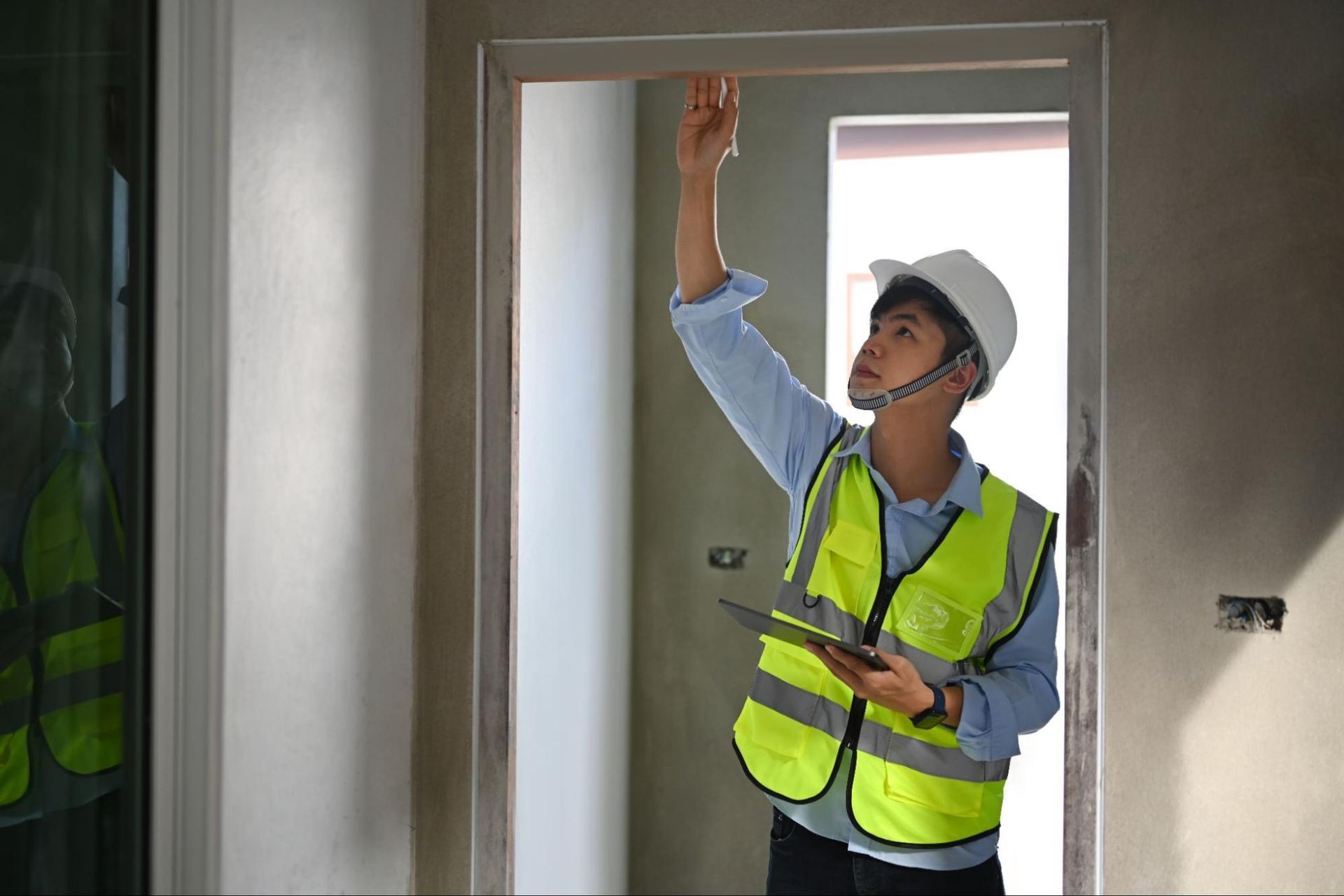Ensure Compliance Early with ADA Pre-Construction Inspections
Did you know that even before you've completed a building, you need to start making allowance for accessibility? Pre-construction ADA inspections are essential for ensuring that new builds meet the standards set by the Americans with Disabilities Act, but the process can often feel overwhelming.
By thoroughly assessing properties before construction begins, you avoid costly modifications later on. In this piece, we talk all about what you need for pre-construction ADA inspections. Let's begin!
Overview of Pre-Construction ADA Inspections
Pre-construction ADA inspections assess properties for compliance with the Americans with Disabilities Act standards. These inspections identify accessibility issues early, ensuring new builds accommodate individuals with disabilities.
Definition and Importance
Pre-construction ADA inspections involve evaluating a property's design for adherence to accessibility standards. These assessments outline necessary modifications to align with ADA guidelines. They significantly reduce compliance risks, ensuring that all individuals, regardless of ability, can access buildings safely and independently. Implementing finessed design elements during construction can save time, money, and effort later on, eliminating costly retrofits.
Legal Requirements and Standards
Legal requirements for ADA compliance stem from the ADA and the Texas Accessibility Standards (TAS). Effective January 2021, projects exceeding $50,000 must undergo a thorough plan review before construction begins. These regulations mandate accessibility features like ramps, door widths, and accessible restrooms to guarantee equitable access.
Engaging a qualified inspector ensures your project meets these legal standards, providing peace of mind and avoiding hefty fines in the future. Adhering to these requirements is crucial for property owners and developers aiming for compliance in Greater Houston.
Key Elements of Pre-Construction ADA Inspections

Pre-construction ADA inspections identify compliance issues early, ensuring new builds meet Americans with Disabilities Act (ADA) standards. These inspections streamline the construction process by outlining essential modifications.
Accessibility Guidelines
Accessibility guidelines detail the necessary features for compliance, ensuring safe access for individuals with disabilities. Adherence to these guidelines encompasses aspects such as ramp slopes, accessible parking spaces, and restrooms that meet specified dimensions. Consulting qualified inspectors during the planning phase ensures compliance and reduces risks associated with noncompliance.
Common Compliance Issues
Common compliance issues arise from overlooking key features outlined in ADA guidelines.
- Insufficient door widths,
- inadequate ramp slopes, and
- improperly placed signage frequently hinder accessibility.
Engaging experts early helps address these issues proactively, preventing costly modifications once construction starts. Addressing compliance concerns ensures projects meet legal standards, fostering inclusivity and safety for all.
The Inspection Process

The inspection process plays a crucial role in ensuring compliance with ADA and TAS standards. Thorough assessments identify accessibility issues early, aiding in the development of projects that are inclusive and safe for all individuals.
Preparing for the Inspection
Preparing for the inspection involves assessing current building plans and relevant documentation. Inspectors review blueprints to identify potential compliance challenges and highlight key areas of focus for the actual inspection.
Additionally, engaging stakeholders, including architects and builders, enhances communication and ensures that everyone understands compliance requirements. Scheduling the inspectionearly in the construction planning phase allows for ample time to address any necessary modifications.
Conducting the Inspection
Conducting the inspection entails a detailed evaluation of the property to gauge ADA compliance. Inspectors assess critical features such as entrances, exits, parking facilities, and interior spaces to ensure they meet accessibility standards. This hands-on approach not only pinpoints issues like door widths and ramp slopes but also provides immediate feedback, allowing for timely adjustments before construction progresses.
Benefits of Pre-Construction ADA Inspections
Pre-construction ADA inspections provide critical advantages for property owners and builders. Engaging in these inspections ensures compliance with necessary accessibility standards, fostering an inclusive environment for everyone.
Ensuring Compliance
Ensuring compliance with the Americans with Disabilities Act (ADA) and Texas Accessibility Standards (TAS) is vital during the construction phase. Pre-construction ADA inspections identify potential compliance issues early, allowing for necessary adjustments before construction begins.
This proactive approach reduces the risk of noncompliance, mitigating potential legal liabilities and fines. Licensed inspectors assess the building plans and site features, ensuring adherence to established guidelines such as accessible entrances and restrooms.
Enhancing Safety and Usability
Enhancing safety and usability is a primary goal of pre-construction ADA inspections. These inspections focus on evaluating critical aspects like entrances, exits, and parking areas to guarantee safe access for everyone. Identifying modifications required to improve accessibility mitigates hazards that individuals with disabilities may encounter.
For example, adjusting ramp slopes and ensuring adequate door widths can significantly enhance usability and safety. This attention to detail improves the overall user experience, fostering an environment where all individuals can navigate spaces freely and confidently. Pre-construction ADA inspections emphasize the importance of safety, usability, and accessibility in building design, ultimately benefiting both property owners and users alike.
Conclusion
Pre-construction ADA inspections play a vital role in creating accessible environments for everyone. By addressing compliance issues early in the planning phase, homeowners can avoid costly modifications and ensure their projects meet legal standards. Engaging qualified inspectors not only provides peace of mind but also fosters inclusivity and safety for individuals with disabilities.
Choosing a reliable inspection service like Accurate Home and Commercial Services can streamline the process and enhance communication among all stakeholders. This proactive approach ensures that new builds are welcoming spaces where everyone can navigate freely. Taking the time to schedule a pre-construction ADA inspection is an investment in both compliance and community accessibility.
Frequently Asked Questions
What are pre-construction ADA inspections?
Pre-construction ADA inspections assess properties for compliance with the Americans with Disabilities Act (ADA) standards. These evaluations identify accessibility issues before construction begins, ensuring that new builds accommodate individuals with disabilities and meet legal requirements.
Why are ADA inspections important for homeowners?
ADA inspections are critical for homeowners as they prevent costly modifications by identifying compliance issues early. By addressing these concerns proactively, homeowners ensure their projects meet legal standards, enhancing safety and usability for everyone, especially individuals with disabilities.
What do pre-construction ADA inspections involve?
Pre-construction ADA inspections involve a thorough review of building plans and a hands-on evaluation of key features such as entrances, exits, and parking facilities. Licensed inspectors assess these elements to ensure they meet accessibility standards and provide recommendations for necessary modifications.
How can I ensure my property meets ADA compliance?
To ensure your property meets ADA compliance, engage a qualified inspector for a pre-construction ADA inspection. This will help identify potential issues, outline necessary modifications before construction starts, and ensure adherence to the legal standards required for accessibility.
What are common compliance issues found during inspections?
Common compliance issues during pre-construction ADA inspections include insufficient door widths, inadequate ramp slopes, and insufficient accessible parking spaces. Addressing these issues early in the construction phase helps create a more accessible environment for individuals with disabilities.
What are the legal requirements for ADA compliance in Texas?
In Texas, projects exceeding $50,000 must undergo a thorough plan review to ensure compliance with the Texas Accessibility Standards (TAS). Engaging a qualified inspector during the planning phase helps maintain compliance and avoids potential legal liabilities and fines.
How can Accurate Home and Commercial Services assist homeowners?
Accurate Home and Commercial Services provides reliable pre-construction ADA inspections, helping homeowners understand compliance standards and prevent costly modifications. Their thorough assessments and clear communication aim to simplify the inspection process and promote accessibility.











